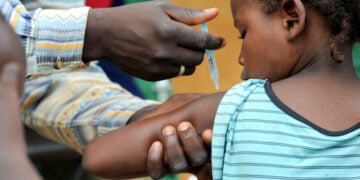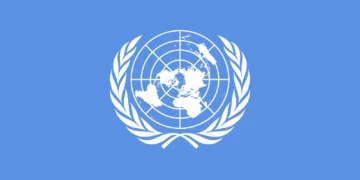The federal government has revealed that the Nigeria loses between ₦13.3 to ₦17.9 trillion direct and indirect costs annually to hepatitis disease.
Coordinating Minister of Health and Social Welfare, Professor Ali Pate disclosed this on Monday at a press briefing to commemorate the 2025 World hepatitis Day.
Speaking on the theme: “Hepatitis: Let’s Break It Down”, in Abuja, Pate said over 20 million Nigerians were currently living with viral hepatitis, comprising 18.2 million with Hepatitis B and 2.5 million with Hepatitis C.
Despite the availability of vaccines and treatments, the minister stated that more than 90 per cent of infected persons remain undiagnosed, posing a major threat to public health and contributing to high transmission rates.
“Hepatitis symptoms are often misdiagnosed as malaria. Conditions like fever, fatigue, and malaise are wrongly self-treated while the virus continues to damage the liver, sometimes leading to liver failure or cancer,” the minister said.
Each year, 4,252 Nigerians die from liver cancer resulting from untreated hepatitis, highlighting the urgent need for targeted interventions.
The minister described the situation as a “silent epidemic” that has remained under the radar for too long, despite its devastating impact.
He also unveiled a new national initiative – “Project 365,” a year-round campaign to scale up screening, diagnosis, and treatment, with the goal of eliminating Hepatitis C and halting the transmission of Hepatitis B by 2030.
“This project will complement existing efforts to eliminate mother-to-child transmission of HIV, hepatitis, and other sexually transmitted infections,” he said.
Other key interventions announced include increased budgetary allocations for hepatitis programmes, establishment of a Viral Elimination Fund (VEF), tax incentives and regulatory reforms to encourage local pharmaceutical production, legislative support to expand diagnostic and treatment services across Nigeria.
The minister emphasised that Nigeria currently ranks third globally in hepatitis burden and must act urgently to reverse the trend.
The Director and National Coordinator, National AIDS and STIs Control Programme (NASCP), Dr Adebobola Bashorun, described the new national initiative as a year-long strategic outreach that will take hepatitis prevention and care to every community and constituency across the country, in partnership with the National Assembly.
He noted that while the hepatitis B vaccine has been part of Nigeria’s national childhood immunisation schedule since 2004, coverage has remained uneven, leaving many children under 21 years unprotected.
“This means that anyone born after 2004 should have been vaccinated, but we know that due to system lapses, some children missed it. If we don’t close these gaps, infections will continue to spread,” he warned.
Bashorun said hepatitis B virus (HBV) and hepatitis C virus (HCV) are transmitted through blood, sexual contact, and exposure to infected body fluids routes similar to HIV.
He stressed the need for responsible sexual behaviour, routine testing, and increased awareness.
“For adults above 21 who missed the childhood vaccination, the next step is testing. If you test negative for hepatitis B surface antigen, you need to begin a three-dose vaccination. For children, it’s a four-dose series, starting from birth,” he explained.
The campaign also includes collaboration with the National Transportation Agency to spread information across motor parks, public transit, and road safety networks.
“This is part of a wider communication strategy that uses multiple platforms to counter misinformation and promote preventive health behaviour,” he explained.
While hepatitis C is curable with modern antiviral medications, hepatitis B, though not curable, can be effectively managed with treatment that slows the progression to chronic liver disease.
Bashorun emphasised that finding infected persons early and linking them to care remains the cornerstone of Nigeria’s hepatitis control strategy.
“If we don’t find and treat those infected, the number of new cases will keep rising. But with testing, treatment, and vaccination, the future is bright,” he said.
As part of the campaign, the government also urged lawmakers to champion hepatitis awareness in their constituencies and ensure funding for test kits, vaccines, and public health outreach.
World Hepatitis Day is marked annually on July 28 to raise global awareness of hepatitis and encourage prevention, diagnosis, and treatment.





